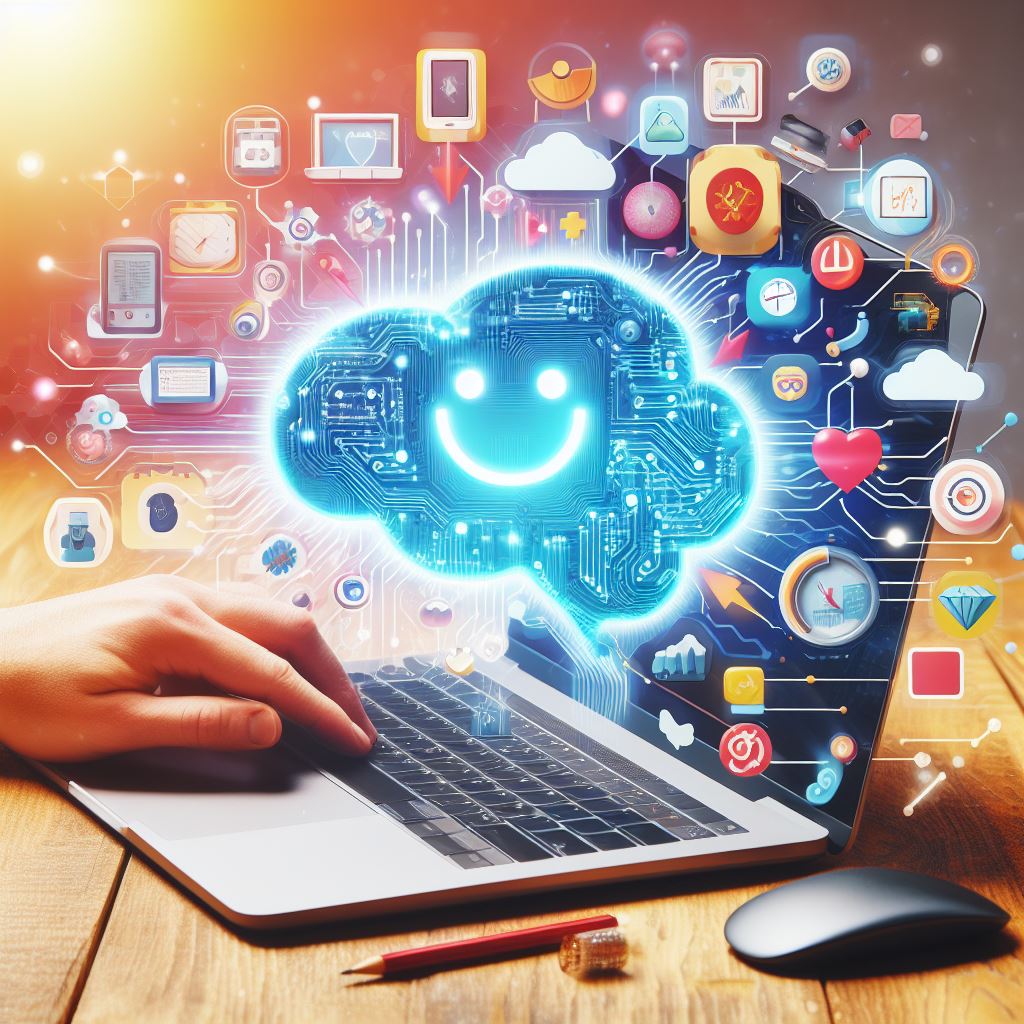Tech and Mental Health: Innovations for Well-being
Introduction
In today’s digital age, technology plays a significant role in our lives. From smartphones to wearable devices, technological innovations have become an integral part of our daily routines. Beyond convenience and entertainment, technology has also made advancements in the field of mental health. This article explores the intersection of tech and mental health, highlighting innovative solutions that promote well-being and support individuals in their mental health journeys.
Table of Contents
- Introduction
- Understanding Mental Health
- The Role of Technology in Mental Health
- Advancements in Teletherapy
- Mobile Applications for Mental Health
- Wearable Devices and Tracking Tools
- Virtual Reality Therapy
- Challenges and Ethical Considerations
- Privacy and Data Security
- Dependence on Technology
- Accessibility and Inclusivity
- Innovative Technological Solutions
- AI-Powered Mental Health Chatbots
- Virtual Support Communities
- Digital Cognitive Behavioral Therapy (CBT)
- Biofeedback Devices for Stress Management
- Mindfulness and Meditation Apps
- Gamified Therapy Applications
- Benefits of Technological Innovations in Mental Health
- Increased Access to Mental Health Support
- Personalized and Tailored Interventions
- Real-time Monitoring and Feedback
- Reduced Stigma and Increased Engagement
- Future Trends and Possibilities
- Integration of Artificial Intelligence
- Internet of Things (IoT) in Mental Health
- Advancements in Brain-Computer Interfaces
- Virtual Reality for Exposure Therapy
- Conclusion
- FAQs (Frequently Asked Questions)
- How effective are mental health apps?
- Can technology replace traditional therapy?
- Are there any risks associated with relying on technology for mental health support?
- Are these technological innovations accessible to everyone?
- How can I ensure the privacy and security of my mental health data?

Understanding Mental Health
Before delving into the impact of technology on mental health, it is essential to grasp the concept of mental health itself. Mental health refers to a person’s emotional, psychological, and social well-being. It affects how individuals think, feel, and act, influencing their ability to cope with stress, handle relationships, and make decisions.
Mental health conditions, such as anxiety, depression, and bipolar disorder, are prevalent worldwide. These conditions can significantly impact a person’s quality of life, relationships, and overall well-being. Fortunately, advancements in technology have opened new avenues for mental health support and intervention.
The Role of Technology in Mental Health
Advancements in Teletherapy
Teletherapy, also known as online therapy or e-counseling, has emerged as a popular mental health service delivery model. It involves accessing therapy sessions remotely through video calls, phone calls, or text-based platforms. Teletherapy provides individuals with convenient and flexible access to licensed therapists, breaking down barriers such as distance and transportation.
Mobile Applications for Mental Health
The proliferation of smartphones has led to the development of numerous mental health applications. These apps offer a wide range of features, including mood tracking, guided meditation, stress reduction techniques, and self-help resources. With just a few taps, individuals can access tools and techniques to manage their mental well-being anytime, anywhere.
Wearable Devices and Tracking Tools
Wearable devices, such as smartwatches and fitness trackers, have expanded beyond physical health monitoring. They now incorporate features for tracking and monitoring mental health indicators, such as heart rate variability and sleep patterns. These devices provide valuable insights into an individual’s mental well-being and enable them to make informed decisions about their lifestyle and habits.
Virtual Reality Therapy
Virtual reality (VR) therapy is an immersive technology that simulates real-world environments to treat various mental health conditions. It has shown promising results in treating anxiety disorders, phobias, and post-traumatic stress disorder (PTSD). By exposing individuals to controlled virtual environments, VR therapy offers a safe space for exposure therapy and desensitization.
Challenges and Ethical Considerations
While technology offers innovative solutions for mental health, it also poses certain challenges and ethical considerations.
Privacy and Data Security
With the increasing collection and storage of personal data, ensuring the privacy and security of mental health information is paramount. Developers and providers of mental health technologies must adhere to strict data protection protocols to safeguard sensitive user information.
Dependence on Technology
Overreliance on technology for mental health support may inadvertently lead to reduced human interaction. It is crucial to strike a balance between utilizing technology as a tool and maintaining meaningful connections with professionals and support networks.
Accessibility and Inclusivity
Despite the advancements in technology, accessibility remains a critical issue. Not everyone has access to smartphones, stable internet connections, or the necessary skills to utilize mental health applications. Ensuring inclusivity and bridging the digital divide is vital to reach underserved populations.
Innovative Technological Solutions
Several innovative technological solutions are transforming the landscape of mental health support.
AI-Powered Mental Health Chatbots
AI-powered chatbots leverage natural language processing and machine learning algorithms to provide automated mental health support. These chatbots offer personalized conversations, emotional support, and evidence-based interventions. They are available 24/7 and serve as accessible resources for individuals seeking immediate support.
Virtual Support Communities
Virtual support communities, such as online forums and peer-to-peer platforms, connect individuals with shared experiences. These communities provide a sense of belonging, emotional support, and a safe space to discuss challenges and seek advice. They foster a supportive network where individuals can connect with others who understand their struggles.
Digital Cognitive Behavioral Therapy (CBT)
Digital CBT platforms deliver evidence-based therapy techniques through digital mediums. These platforms offer interactive modules, exercises, and assessments that guide individuals through the process of cognitive restructuring and behavior modification. Digital CBT provides self-paced interventions that empower individuals to manage their mental health effectively.
Biofeedback Devices for Stress Management
Biofeedback devices, such as heart rate monitors and EEG headbands, enable individuals to monitor their physiological responses to stress. By providing real-time feedback, these devices help users identify stress triggers and learn relaxation techniques. They promote self-awareness and empower individuals to manage their stress levels effectively.
Mindfulness and Meditation Apps
Mindfulness and meditation apps have gained popularity for their ability to reduce stress and promote mental well-being. These apps offer guided meditation sessions, breathing exercises, and mindfulness techniques. They encourage individuals to be present in the moment, cultivate self-compassion, and develop resilience.
Gamified Therapy Applications
Gamified therapy applications combine elements of gaming with therapeutic interventions. These apps engage individuals in interactive activities that promote skill-building, emotional regulation, and problem-solving. By making therapy enjoyable and immersive, gamified applications increase user engagement and motivation.
Benefits of Technological Innovations in Mental Health
The integration of technology in mental health brings several benefits for individuals seeking support and intervention.
Increased Access to Mental Health Support
Technology has greatly expanded access to mental health support, particularly for those in remote areas or with limited mobility. Teletherapy and mobile applications allow individuals to connect with therapists and access resources from the comfort of their own homes. This accessibility ensures that people who may have previously struggled to receive help can now find the support they need.
Personalized and Tailored Interventions
Technological innovations in mental health offer personalized interventions based on individual needs. AI-powered chatbots and digital CBT platforms adapt to the user’s preferences and provide tailored recommendations and guidance. This personalized approach increases the effectiveness of interventions, as they are specifically designed to address each person’s unique challenges.
Real-time Monitoring and Feedback
Wearable devices and tracking tools enable real-time monitoring of mental health indicators. Individuals can track their mood, stress levels, and sleep patterns, gaining insights into their well-being and identifying patterns and triggers. Real-time feedback allows users to make informed decisions and take proactive steps to manage their mental health effectively.
Reduced Stigma and Increased Engagement
Technology has played a significant role in reducing the stigma associated with mental health. With the availability of anonymous online platforms and virtual support communities, individuals can seek support without fear of judgment or discrimination. This increased engagement and openness contribute to a more accepting and supportive environment for mental health conversations.
Future Trends and Possibilities
The field of tech and mental health continues to evolve, paving the way for exciting future trends and possibilities.
Integration of Artificial Intelligence
Artificial intelligence is expected to play a more prominent role in mental health interventions. AI algorithms can analyze vast amounts of data and provide personalized recommendations, improving the accuracy and effectiveness of interventions. AI-powered virtual therapists may become more common, offering continuous support and personalized treatment plans.
Internet of Things (IoT) in Mental Health
The Internet of Things (IoT) has the potential to revolutionize mental health care. Connected devices can collect data on various aspects of an individual’s well-being, such as sleep quality, physical activity, and social interactions. This data can provide comprehensive insights into a person’s mental health status, facilitating early detection of issues and personalized interventions.
Advancements in Brain-Computer Interfaces
Brain-computer interfaces (BCIs) hold promise for individuals with severe mental health conditions. BCIs enable direct communication between the brain and external devices, allowing individuals to control technology using their thoughts. This technology has the potential to improve the quality of life for people with conditions such as paralysis or severe psychiatric disorders.
Virtual Reality for Exposure Therapy
Virtual reality (VR) is likely to continue advancing as a therapeutic tool for exposure therapy. VR environments can recreate realistic scenarios that help individuals confront and overcome their fears and anxieties in a controlled setting. The immersive nature of VR therapy enhances the effectiveness of exposure-based treatments.
Conclusion
Technology has become a powerful ally in promoting mental health and well-being. From teletherapy and mobile applications to wearable devices and virtual reality therapy, innovative solutions are transforming the way we approach mental health support. These technological advancements offer increased accessibility, personalized interventions, and real-time monitoring, empowering individuals to take control of their mental well-being. As technology continues to evolve, it holds immense potential for further improving mental health care and creating a more inclusive and supportive environment for all.
FAQs (Frequently Asked Questions)
- How effective are mental health apps?
- Mental health apps can be effective tools for managing and improving mental well-being. However, their effectiveness may vary depending on the individual and the specific app. It’s important to choose reputable apps backed by evidence-based practices and consult with a healthcare professional if needed.
- Can technology replace traditional therapy?
- Technology cannot entirely replace traditional therapy, as face-to-face interactions with trained professionals are often crucial. However, technology can complement traditional therapy by providing additional support, resources, and convenient access to services.
- Are there any risks associated with relying on technology for mental health support?
- While technology offers numerous benefits, there are potential risks to be aware of. These include issues of privacy and data security, the potential for overreliance on technology, and the importance of ensuring inclusivity and accessibility for all individuals.
- Are these technological innovations accessible to everyone?
- Accessibility is an ongoing concern in the field of tech and mental health. Efforts are being made to ensure that these innovations are accessible to a wide range of individuals, regardless of socioeconomic status, age, or ability. However, there are still challenges to overcome in bridging the digital divide and ensuring inclusivity.
- How can I ensure the privacy and security of my mental health data?
- When using technology for mental health support, it’s essential to choose reputable apps and platforms that prioritize data privacy and security. Read privacy policies, look for encryption and data protection measures, and consider seeking recommendations from trusted sources to ensure the safety of your personal information.
